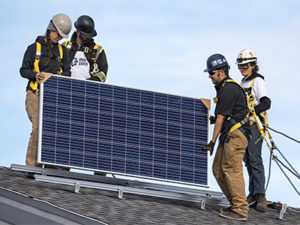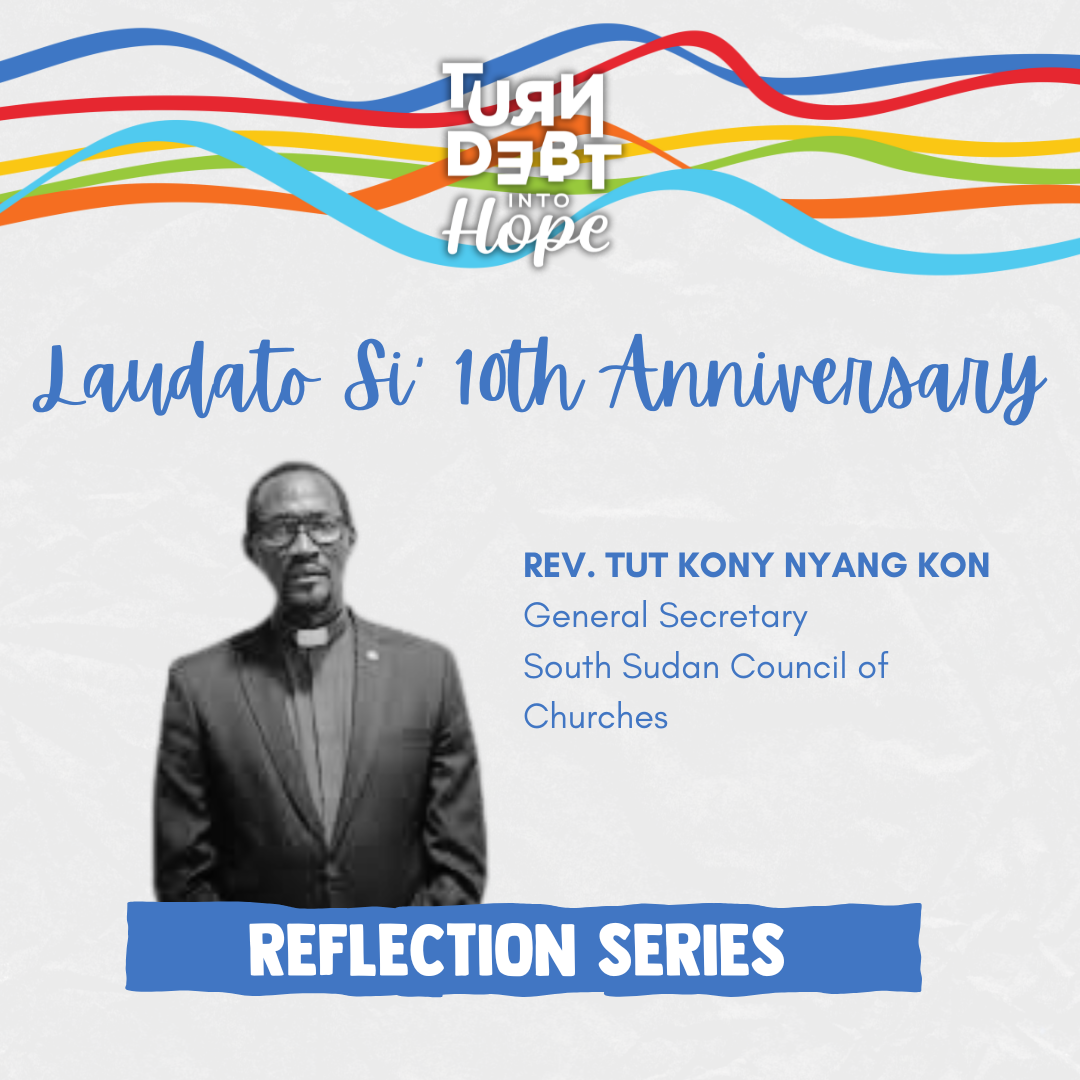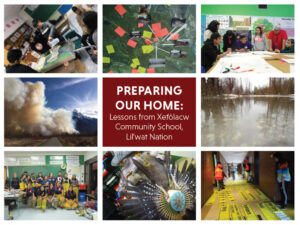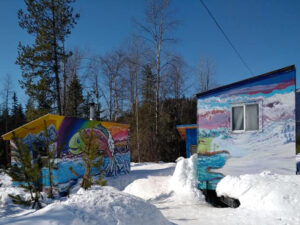Trailblazer: Iron and Earth

Towards a Renewable Energy Economy
Fossil fuel extraction creates a boom and bust cycle for the economy. Nowhere is this truer than in Canada, where workers in the oil, gas and coal industry are starting to look to renewable energy for more secure and sustainable employment. Iron & Earth, a Canadian non-profit organization led by energy workers, is exploring these renewable energy employment alternatives and advocating for a sustainable energy future. The organization recognizes the current global need for oil, but as Executive Director Lliam Hildebrand explains, the organization’s mission is to “empower the fossil fuel industry and Indigenous workers to build a renewable energy economy.” While currently only in Canada, the organization plans to become international in scope. It is committed to building up manufacturing in renewable energy, and positioning contractors and unions within this emerging sector by developing programs to train workers.
For an article in The Conversation, Andrew Voysey interviewed over 20 oil sands workers associated with Iron & Earth to identify the struggles of working in the oil, gas and coal industry. The interviews revealed that workers are unhappy with working conditions, particularly the schedule of working three weeks on, and one week off. Time off with family and friends is often limited because of the time needed to travel to and from their homes, especially for energy workers living in Newfoundland and working in Alberta. Voysey also noted that the boom and bust cycle of oil extraction creates unhealthy and unreliable employment security, which is leading many workers to rethink employment opportunities with oil sands operations. There are competing estimates about how many jobs have been lost in the oil sands since the oil price downturn in 2015 but Statistics Canada’s Survey of Employment, Payroll and Hours suggests that 3,853 oil and gas extraction jobs were lost in Alberta from December 2014 to April 2016, along with a further 29,196 jobs that support energy and mining extraction. Iron & Earth is working to address this issue by preparing workers for a future in the energy sector with job security.
Many of the skills required in the oil, gas and coal industry are applicable to the sustainable energy sector, but according to Iron & Earth, a lot of work is needed to transfer these skills. The organization provides skills training for oil sands workers in Edmonton, Calgary, and the East Coast to ensure Canadian workers have fluid skills that adapt to the needs of clean energy. One such initiative is Solar Skills, a nationwide series of training programs which aims to help 1000 workers access hands-on experience and up-to-date information on solar installation. This training also allows workers who might continue to take jobs in the oil and gas industry to go back to those worksites and speak knowledgeably about the applications and opportunities offered by renewable energy. So, the program not only allows workers to train across two different disciplines, it also brings sustainable perspectives into oil sands operations. Furthermore, Iron & Earth works with Indigenous partners to improve access to technical skills through delivery of immersive, cross-cultural experiences that are grounded in traditional knowledge and based on principles of reconciliation. In 2017, Iron & Earth partnered with the Louis Bull Tribe in Maskwacis, Alberta for a weeklong training that led to the installation of a solar project in the community. With an emphasis on cultural understanding, the partnership was an opportunity for Indigenous and non-Indigenous participants to work and learn side-by-side, while building understanding of their treaty relationship and responsibility for taking care of the land.
There is great potential for employment within the renewable energy industry, especially in Alberta where the province has committed to secure 30% of its energy from renewables by 2030. In addition, the number of jobs in the clean energy sector in Canada continues to grow. In 2014, clean energy jobs surpassed total oil sands employment, according to Clean Energy Canada. The transition to a clean energy economy will no doubt be met with challenges. How workers and communities most affected are supported will determine whether this transition is just. In 2017, the federal government announced the creation of a Task Force on the Just Transition for Canadian Coal-Power Workers and Communities that will provide recommendations to government workers and communities affected by the accelerated phase out of coal fired electricity. This is a step towards addressing these challenges. Iron & Earth, in its efforts to train individuals for a clean energy future, is also responding to those challenges and empowering Canadians to adapt to new opportunities.
Written by Randy Schmucker and Beth Lorimer








